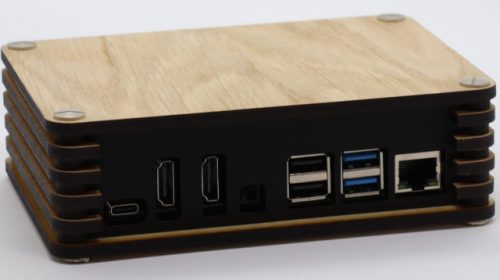Well, to talk about the Waveshare Mini-B IO board to ROUGOL. Same thing, right? Not yet formally announced by the RISC OS User Group of London (ROUGOL), but listed on the website, the group’s next meeting will take place on 19th February, and the speaker will be Chris Hall on the topic of the Waveshare Mini Base board (CM4-IO-BASE-B), which he will be bringing along with him to demonstrate.
Read MoreTag: Raspberry Pi
42 computers at the Southwest Show
Count ’em. You’ll see. No, wait, don’t – that’s meant to say 4té2, not 42! The 4té2 machine, released last year, was R-Comp‘s follow-up to their previous Raspberry Pi-based computer, the 4té – and the company has confirmed that there will be a small supply of stock available at the Southwest Show on Saturday, despite the ongoing shortage of the Pi-boards.
Read MoreDeleGate joins version 1.20 of PiTools
A new version of PiTools has been released by R-Comp, and is available now from !Store with the update free of charge if you’re an existing user.
Read MoreChristmas offers from CJE Micro’s on RapidO Ti and RaspberryRO
If you’re in the market for some new RISC OS computing goodness, the little shop with a lot of stock, CJE Micro’s (who are now a slightly bigger shop – or rather industrial unit) with a lot of stock) may be able to help. Chris Evans has announced a couple of price reductions on their RapidO Ti and RaspberryRO computers that will run from now until the end of January.
Read More‘Not the London Show’ news from RISCOSbits
A regular exhibitor at RISC OS shows, RISCOSbits would have been at the one originally planned for tomorrow. However, as we (hopefully) all know, the London Show isn’t going ahead – but over the Summer and early Autumn Andy Marks from RISCOSbits has been working on a few new bits and pieces; things that would have been launched, released, shouted about from the rooftops (or at least a set of tables) at the show. So let’s pretend we’re there, and look at what Andy would be telling us on the…
Read MoreR-Comp attempts to answer the Ultimate Question
With the new sixteen hundred 4té2 machine.1 Following up their 4té computer, a Raspberry Pi 4-based system in a custom designed case, R-Comp Interactive has now launched the next machine in that line – the 4té2.
Read MoreRISCOSbits would like to welcome you to join them for Stonking Saturday!
(Oh, and by the way, there’s a new RISC OS system available for that day only!) If you’re a bit fed up with those pesky Overpuddlians bringing their practices and other atrocities over here, such as the increasingly common use of ‘invite’ as a noun, or annual sales events like ‘Black Friday’ (which tend to last longer than that one day) – and even worse, certain operating systems, when we have a rather nice (if slightly flawed) home grown one that runs on a family of processors which also began…
Read MoreMidlands User Group discussing Pi cameras – 4th December
Pi… Camera… Action! (And erm… RISC OS?) Although most laptops these days include webcams, as do some normal monitors even, the Raspberry Pi has its own camera module and a number of third parties also supply cameras for the device. At the next Midlands User Group (MUG) meeting, John Rickman will be talking about cameras for the Pi, and exploring what you need to use one.
Read MorePi 400 gets a Plus One
RISC OS users who were Acorn users long before the Archimedes and our favourite OS was ever a thing will remember that the BBC Micro had a younger, more limited sibling – the Acorn Electron. And they will also therefore have observed that the Raspberry Pi 400, a small computer built into a keyboard, could be seen as a nod to computers like the Electron – especially given that the Pi can run RISC OS, and therefore BBC BASIC (albeit a greatly improved version, and using much more memory), the…
Read MoreAccess an ESP32 camera module from the desktop
If you have a Raspberry Pi and wish to attach a camera to it there are a number of options available to you – including from the Raspberry Pi Foundation themselves – but if you wish to use one with RISC OS, your options are considerably more limited. So limited, in fact, that until very recently I don’t think there was a working option. As of mid-May, however, that changed thanks to Rick Murray.
Read More





